Is Galvanized Steel Safe for Vegetable Gardens? What You Need To Know!
-

- Last updated:
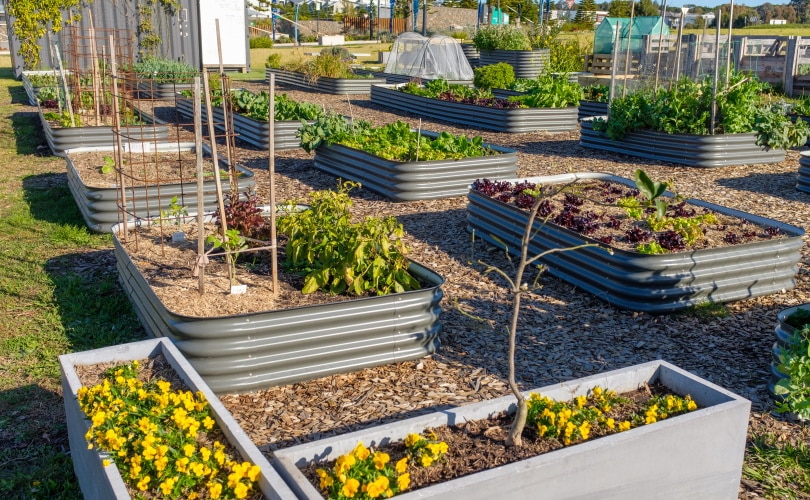
When making a vegetable garden, you might want to add some raised garden beds or metal poles to hold up vines. But you may be faced with a dilemma on the right material to use. One common material is galvanized zinc, but is it safe? The simple answer for this is yes, galvanized steel is safe for gardening. The zinc coating of the galvanized steel can only be broken down by an acid; however, the soil is neutral, meaning it will have no impact on the zinc. This makes the galvanized steel safe for use in this case.
Raised beds are becoming the gardening way of choice, especially for urban areas. They are easier to manage and provide a more organized way of growing plants. Galvanized steel as a bed for vegetable gardens are long-lasting, and the zinc coating it comes with is a micronutrient and part of the soil, which is part of the reason it has become the bed of choice for home gardens.
Let’s take a deeper look at galvanized steel, and see why more people are opting for this material.
What Is Galvanization?
Galvanization is the process of layering zinc on the surface of other metals, which prevents rust when the metal comes into contact with moisture. The procedure involves a hot-dip process where the material to be galvanized is dipped in molten zinc, creating a layer of zinc on the surface.
The material is then cooled to allow a proper and uniform layer, which, if not achieved, will be re-dipped for a secondary coating.
It is worth noting that not all zinc layering is done in pure zinc. Sometimes there is a mixture of zinc and aluminum, which protects both the metallic material and the zinc from moisture damage.
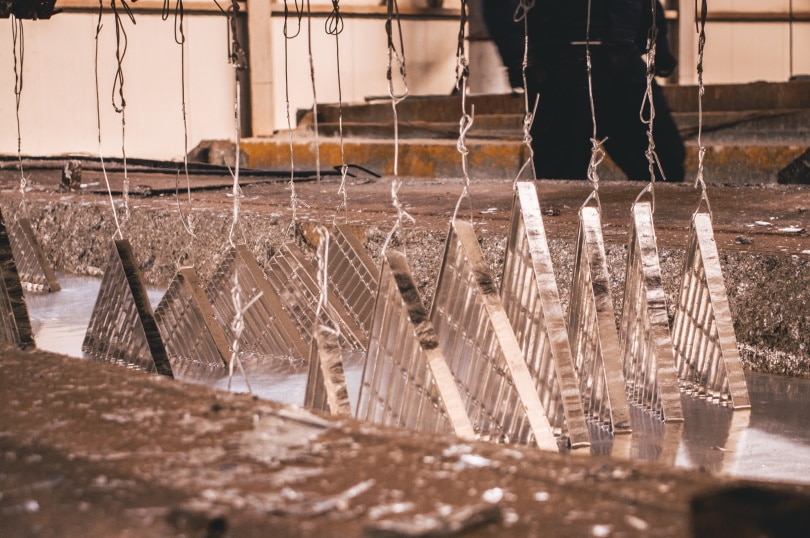
Can Chemical Leach Into the Soil from Galvanized Steel?
There is nervousness around using galvanized steel as it is thought to be dangerous for the soil and plants due to chemicals leaching from the galvanized steel. It may be true, as zinc is considered toxic if breathed in or consumed, but in terms of growing food, the health risk is very low.
In the case of extremely acidic water, such as one from an acidified well that has not been treated for a long time, the zinc will break down. This will take a long time, especially if the coating is not thick enough, but most municipalities will treat the water, preventing such breakdowns from happening.
However, it is worth noting that zinc is a part of the soil and is also required by both plants and humans in small amounts to survive; proof of this can be found in multivitamins.
The risk around zinc may not be from the zinc itself, but rather from certain impurities such as lead pollution. This has been mitigated over time where manufacturers are required to use pure zinc and aluzinc types that help reduce the chance of pollution.
So yes, it is true that zinc can leach a bit in certain extreme conditions; however, the chances of this are minimal and will not pose a risk to a raised bed.
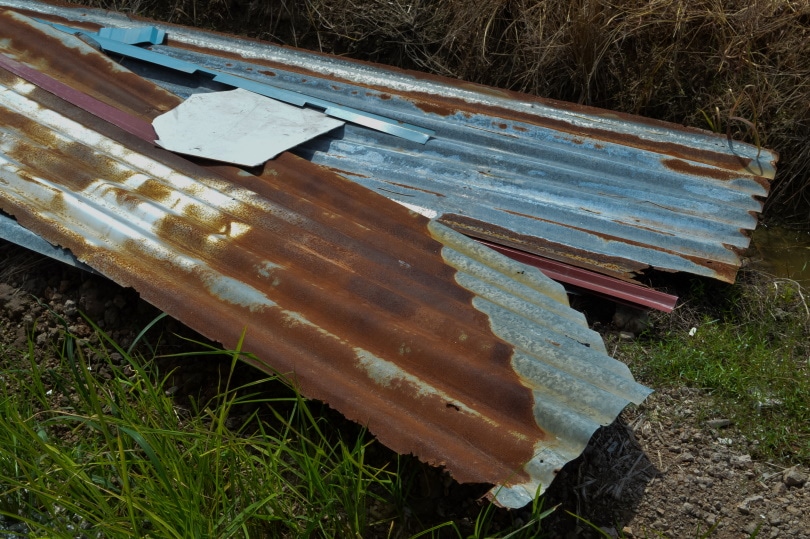
Starting a Galvanized Steel Vegetable Garden
You have a lot of options if you opt for a commercial vegetable garden, but if you choose a DIY galvanized vegetable garden, always choose materials meant for roofing or exposure to the elements.
There are numerous designs on the web showing how you can build your vegetable gardens, with most of them even providing a list of items you need. The best recommendation is to reinforce any wooden parts such as corner posts with galvanized steel to increase their longevity.
While building, check the edges to ensure they are not as much and will not be a health hazard for users.
After making the vegetable garden, the first thing is to lay down some landscaping fabric. Then top it up with a few inches of limestone, some big ones along the side and crushed ones on the floor. Fill it then with pea gravel and finally a mix of compost and topsoil.
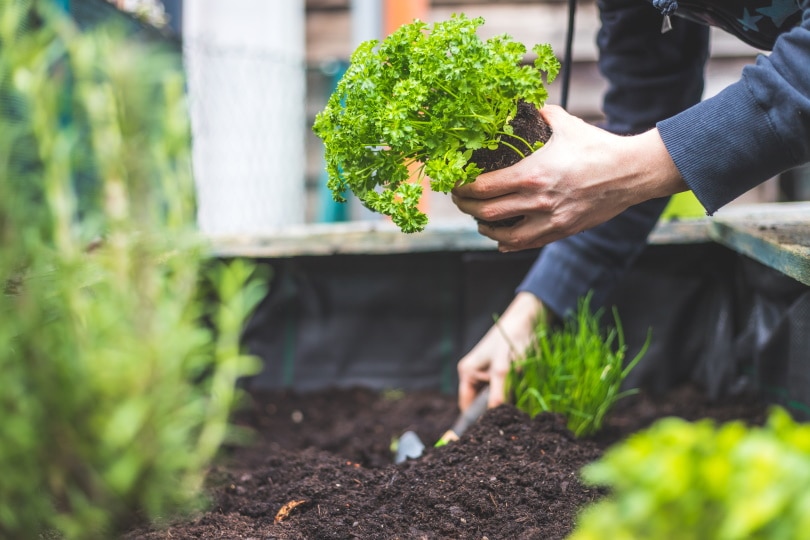
Space Utilization Using Galvanized Steel
The amount of surface area you have will have a huge impact on the kind of vegetable garden you can install. If you have enough space, then you will have plenty of options. But with limited space, you may have to go the extra mile and use galvanized steel containers, which are smaller and space-efficient.
You can also hang these kinds of containers on the fence, which is referred to as a vertical garden. Held in place with support, the containers can be attached all around your fence or the house itself and if done right, you will end up in a bumper harvest.
Caring for Your Galvanized Steel Vegetable Garden
After preparing the raised garden, it is time to plant. Ensure you get high-quality seeds and provide efficient nutrients to get healthy plants. As previously stated, acidic soil may be a disadvantage for a galvanized steel garden and may end up affecting the plants.
Apart from acidity, several other factors may influence the growth of healthy plants in a raised garden. For one, the level of humidity should be factored in as different plants have different humidity requirements, which are controlled by the owner.
Sodium chloride is another factor that may influence the quality of your galvanized steel garden. A high sodium chloride environment increases the pace of rust as it reacts with zinc, slowly adding to rust.
Moss and leeches are other factors that may add to the moisture, but although they won’t affect the zinc, the extra moisture may end up hurting the plants.
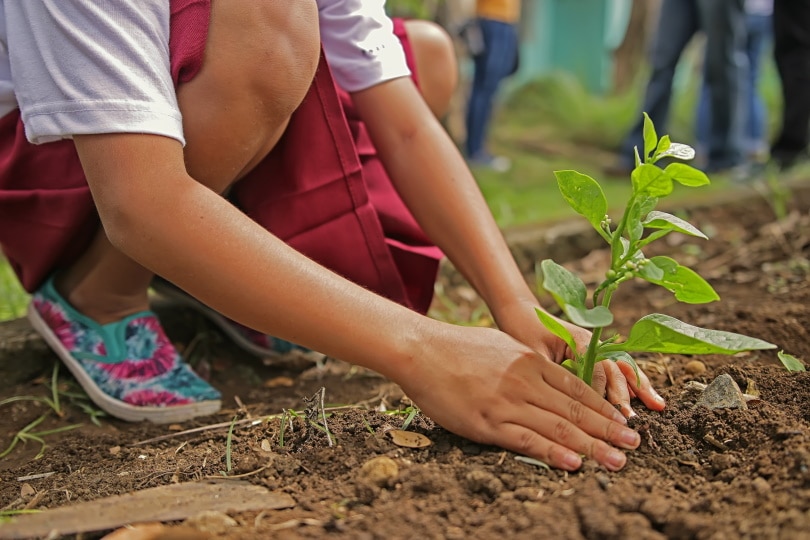
Watering and Compost
The way you water your plant should be influenced by the type of plants you have. Some may need a lot of water, which ends up increasing moisture in the plants.
In terms of compost, ensure you do not add fresh or unfinished compost to the garden as it will have a negative impact on the raised garden as they add acidity to the soil. We already know that this acidity is not good for galvanized steel.
Pros and Cons of Galvanized Steel for Raised Beds
- Compared to wood or ceramic beds, galvanized steel is lighter
- Has increased capacity for holding moisture which is advantageous for certain kinds of plants
- Inexpensive
- Comes in different shapes and sizes
- Durable and long-lasting
- Easy to add drain holes
- Portable
- The upfront cost is higher compared to other materials such as wood. Wood will cost around $30, while galvanized steel will cost you up to $100 for 12 square foot.
- They are not as easily accessible as wood
- In the case of acidic soil, galvanized steel is not the best option
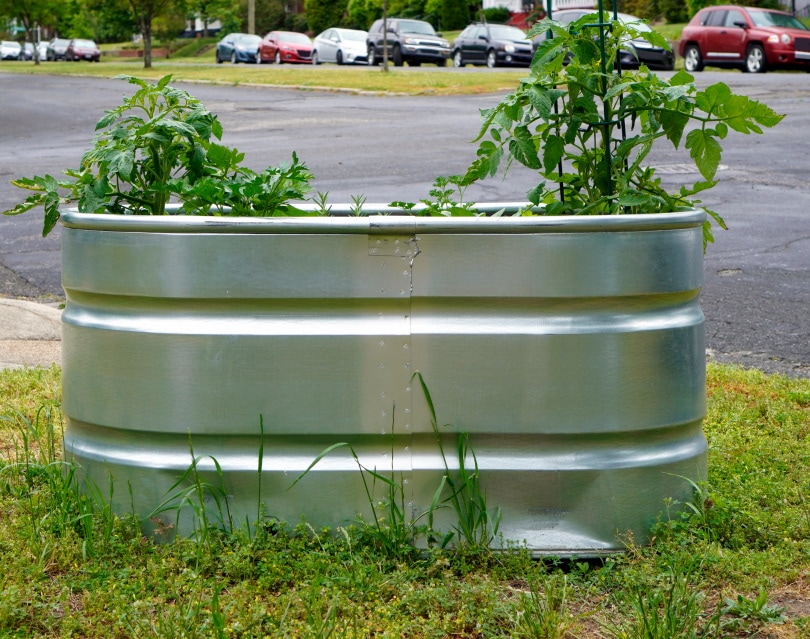
Frequently Asked Questions
Will galvanized steel gardens get too hot?
The simple answer is no. After sitting in the sun, the galvanized steel being a heat conductor will be warm to the touch. Near the steel edges, the soil may get a bit warm but not warm enough to have an impact on the plants. Ensure the plants are properly watered and you will have little to worry about.
Being that the galvanized steel gets a bit warm during the summer, it may be an advantage as it will insulate your plants when temperatures drop at night.
Does galvanized steel require large amounts of soil?
A great advantage with raised gardens is that you can choose the best kind of soil for your plants compared to normal gardens, which come with the existing soil in the garden. However, in the beginning, it may be a bit surprising as to the amount of soil you need.
Most plants and vegetables will initially take around a foot of quality soil for growth. However, you have the option of using fillers like packing peanuts and pinecones. You can then place some landscape fabrics over the top of the filler and add the upper top half with your preferred soil.
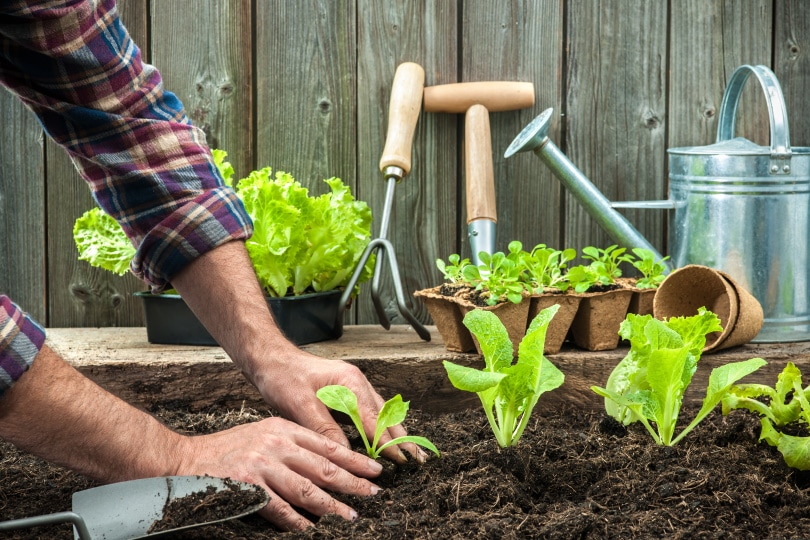
Do galvanized steel metals have poor drainage?
This can be considered somewhat a fact, as the steel garden may be huge with bad drainage, meaning water will not drain out effectively. However, by following a few tips you can ensure efficient water drainage and retention.
Also, most steel gardens will have drainage holes at the bottom, which allow water to pass through easily.
The kind of soil you also have will greatly affect the drainage capabilities of the steel gardens. Choose a lightweight soil mix that can retain moisture and not allow the water to pass through the soil.
Related Read: Is Landscape Fabric Safe for Vegetable Gardens?
Conclusion
What we have learned is that zinc coating is safe for use as a gardening bed and will not pose health risks for people eating from the garden. They will be a great place for you to start a small garden to plate project ensuring you eat only the best food which you have grown yourself in the best possible conditions.
Start your project today and enjoy the durability and reliability a galvanized steel garden comes with.
Featured Image Credit: HollyHarry, Shutterstock
Contents

